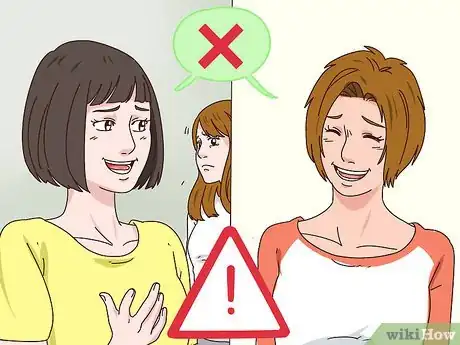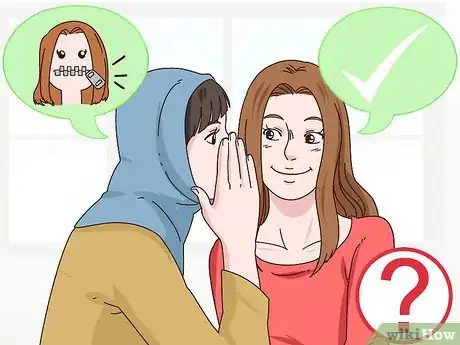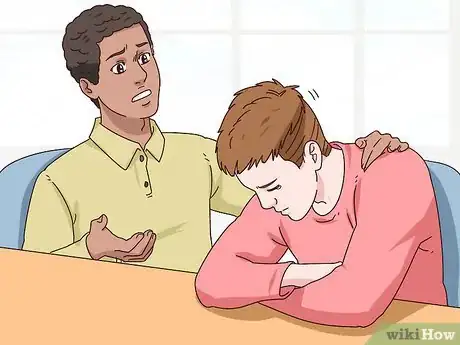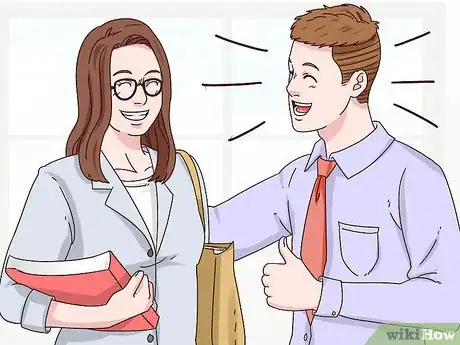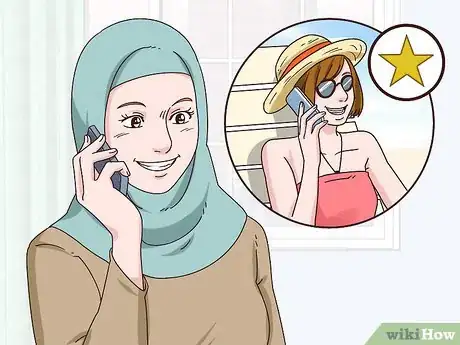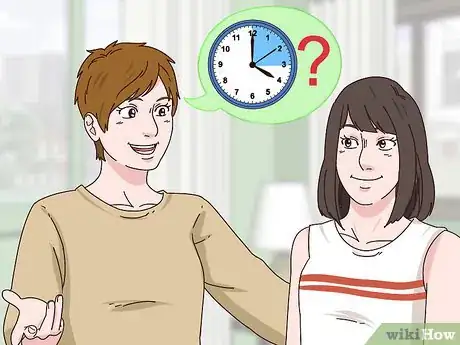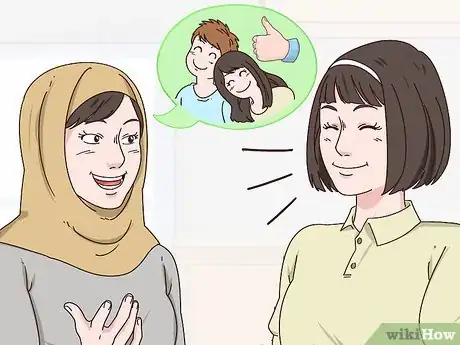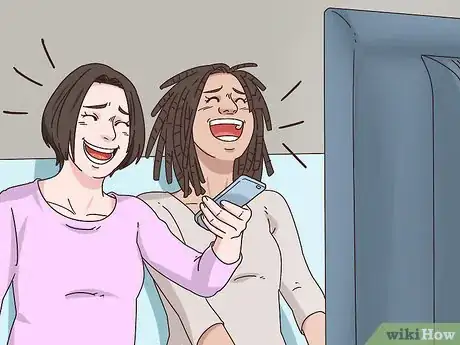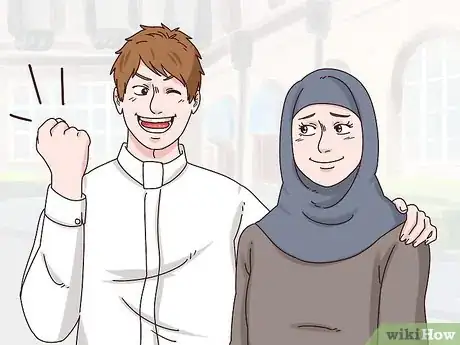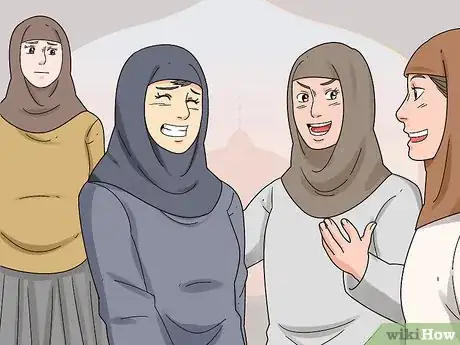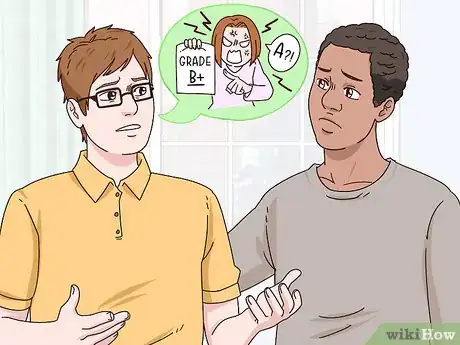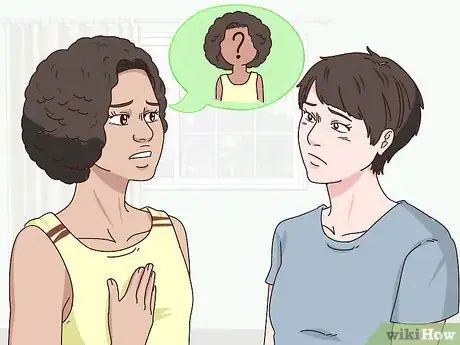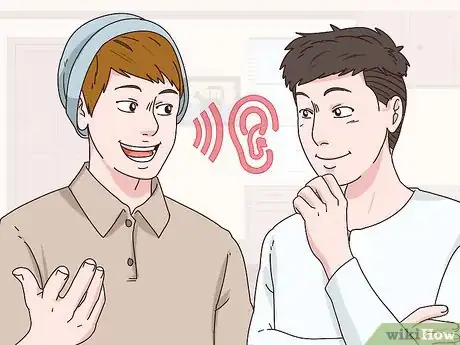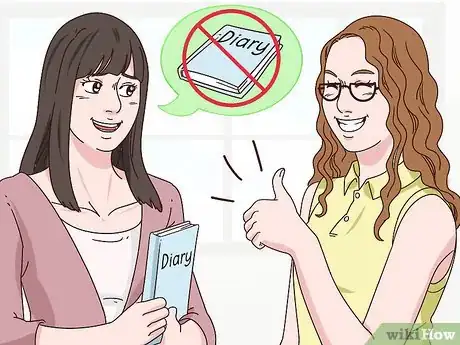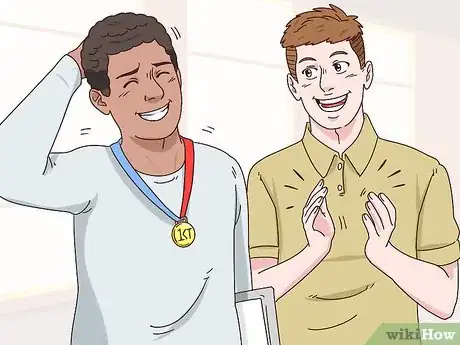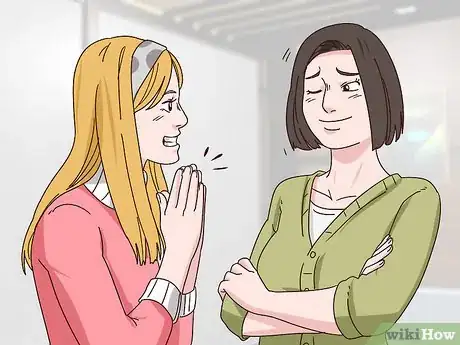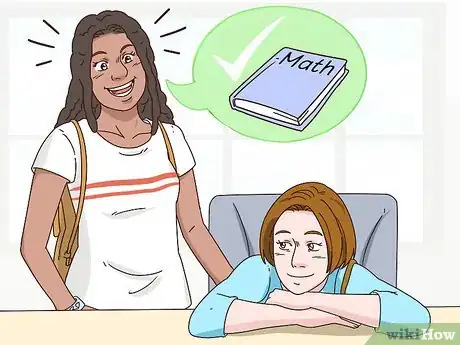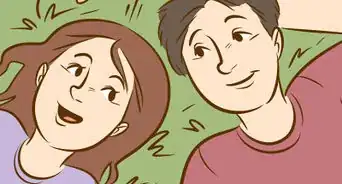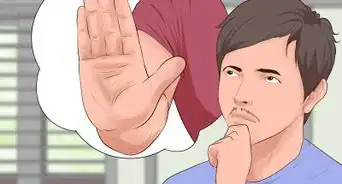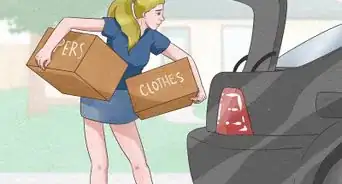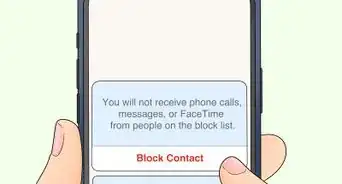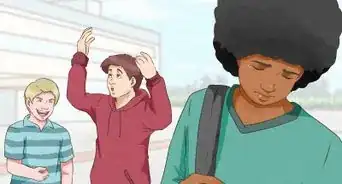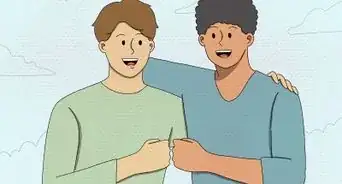This article was co-authored by Christy Irvine, PhD. Dr. Christy Irvine is a Licensed Clinical Psychologist and the owner of her private practice out of Portland, Oregon. With over 10 years of experience, she specializes in individual and couples therapy using various techniques including Emotionally Focused Therapy (EFT), Acceptance and Commitment Therapy (ACT), Interpersonal-Process Therapy, and Cognitive Processing Therapy (CPT). Dr. Irvine holds a B.A. in Psychology from Whitman College and a Ph.D. in Clinical Psychology from The University of Connecticut.
There are 8 references cited in this article, which can be found at the bottom of the page.
This article has been viewed 405,054 times.
Friends make life more rich and satisfying, that’s for sure. But sometimes it can be hard to tell when you've crossed the line from "acquaintance" to "friend" with another person. Learn to recognize who's a friend in your life by searching for some key elements. Look for qualities such as being loyal and dependable, spending time with you, and showing that they care about you.
Steps
Evaluating Their Loyalty and Dependability
-
1Reflect on how you treat one another. Friends are typically loyal to one another, meaning that you shouldn’t reflect back to countless occasions when they have betrayed you, and vice versa. It’s hard for two people to be friends and not ever let one another down. But, betrayals shouldn’t be standard in the relationship.[1]
-
2Determine if they keep your secrets. Friends are infamous for taking secrets to the grave. If you shared information that you did not want known by the general public, your friend keeps their lips sealed.[4]Advertisement
-
3See if they have your back during hard times. One of the positives about going through a breakup, losing a loved one, or having a setback in life is that you can count on your friends to be there. This person shouldn’t only be around during the good times, if they are truly your friend.[5]
- Think about a time when you were having a really hard time in your life. Was this person there for you?
- A true friend should be with you through the good, bad, and ugly. They should offer to help you however they can, and bring you back from the darkness into the light again. A true friend would never think of leaving you during a difficult time in your life.
- A fake friend, or someone who you are not close to, will probably only stick around when things are going well. They might even think or say that your problems are a burden to them. That's the mark of a fake friend.
-
4See if they are happy when you achieve your goals. A true friend will not be jealous when you share any achievement or success in your life. They will celebrate your accomplishments instead trying to tear you down. To decide if this is an authentic friendship or not, pay attention to see if your friend sticks around while you reach new goals and high points in your life.
-
5Notice if they prioritize your friendship. If you know that you can count on this person at the drop of a dime, they probably are your friend. Good friends prioritize their pals over other relationships and situations, especially when they know you need them.[6]
- For example, even if your friend is away on vacation, they’ll still make time to call back and check in on you when you’re sick.
Reflecting on Your Time Together
-
1Ask if they make time for you, even when they are busy. While people can remain friends without seeing one another for a long time, friendships are sustained with quality time together. Even if your friend is busy with school, work, or other responsibilities, they should still make time to call, text, or hang out.[7]
- This goes both ways. If you call someone your “friend” but never seem to have time for them, you may need to reassess how important they are to you.
-
2Check if they get jealous of other friendships. A true friend won't be jealous or possessive - they should feel confident enough in your friendship that they don't have to resort to any sort of manipulative control. They realize that you do not have to be in their company 24/7 in order to validate the friendship. If your friend is trying to prevent you from being friends with other people, they might not be a true friend.
-
3Make sure you enjoy being together. This probably goes without saying, but friends have fun together. No matter if you are bored at home watching TV or painting the town red, it’s all the more tolerable when you’re together.[8]
- As a result of enjoying spending time together, you and your friend probably have a host of memories you’ve made together.
-
4Decide if they help make you a better person. Some people may pretend to be your friend, but they’d much rather see you fail or get into trouble. Incidents happen, of course. But, for the most part, this person should be a good influence on you. They motivate you to become a better person.[9]
- For example, your friend might push you to finish school, suggest that you mend fences with your estranged relatives, and inspire you to give back to others.
-
5Reflect on how you feel when they're around. A true friend should make you feel happier and more alive when you're around them, instead of drained or stressed out. A day spent with your friend should leave you feeling rejuvenated, vibrant, and excited about life. They should be lifting you up, not tearing you down.
- Try to really think about what you're hoping to get from your relationship. Does this friendship look and feel the way you'd like to?[10]
-
6Notice that you have deeper conversations with this person. If a friend asks “How’s it going?” you’re not pressured to respond with “fine.” Instead, you’ll likely go right into how your mom is stressing you out or how your girlfriend is acting differently.[11]
- This element of communication between close contacts is often referred to as self-disclosure. You are more likely to disclose intimate details about yourself with a friend than you are with a total stranger or casual acquaintance.
-
7Question if they really know you and still accept you. Friends allow you to be who you are with no restrictions. If someone is your friend, you have the luxury of showing them your true self—a self that many others may not fully know—but you can still count on this person to love and accept you anyway.[12]
- Friends don’t have to pretend with one another like many people do in casual relationships.
- A true friend shouldn't want to change who you are. They will accept and embrace everything about you, even your awkward and silly parts. This does not mean they have to agree with everything you do or say, but they should not bash you or try to change you.
Noticing How They Show Concern
-
1Determine if they listen. Friends won’t make it all about them in communication. In addition to knowing when to share, they also know when and how to listen. Good listening skills in a friend are important because you need to feel heard and understood by the people you care about.[13]
- Pay attention in your next conversation. Does your friend take the time to hear your message before responding?
- Even if your friend isn't the best listener, it should be clear that they are trying to hear you out and not just talking about themselves.
-
2Question if they respect your boundaries. Healthy relationships of any kind require boundaries—friendships are no exception. A good friend should be willing to acknowledge and respect those boundaries. At the same time, they shouldn’t feel threatened by them.
- For example, if you tell a friend that you don’t feel comfortable with them reading your diary or journal, they should respect your wish.
-
3Figure out if they support you. A friend is someone who shows their affection for you in many ways, one of which is in their support for you and your ideas, interests, and goals. This person should be willing to clap for you when you are succeeding and help nurse your wounds when you are hurt.[14]
-
4Notice if they are forgiving. Everyone makes mistakes, and your friend should be willing to accept that you’re no different. When you mess up and hurt their feelings, you might apologize and beg for their forgiveness. A good friend will gratefully accept your apology and offer you forgiveness. They won’t hold your misdeed over your head or use it to manipulate you.[15]
- For example, if you forgot to call a friend back, they shouldn't avoid you for several days. They should recognize that it was a simple mistake and not give you a hard time about it.
-
5Listen for honest feedback. The thing that separates a friend from the general population is their investment in you as a person. They care about you, which means they are honest with you, even if what they have to say hurts.[16]
- A friend should offer constructive feedback if you’re not doing what you need to be doing. For example, they may say, “You need to get up and study for your math test. Your grade is already low…Come on. I’ll help you.”
Expert Q&A
Did you know you can get expert answers for this article?
Unlock expert answers by supporting wikiHow
-
QuestionA friend hurt me really bad! I tried to forgive them but they constantly treat me different in front of others! They won't call or talk to me unless I do it first and they say they busy
 Tasha Rube, LMSWTasha Rube is a Licensed Social Worker based in Kansas City, Kansas. Tasha is affiliated with the Dwight D. Eisenhower VA Medical Center in Leavenworth, Kansas. She received her Masters of Social Work (MSW) from the University of Missouri in 2014.
Tasha Rube, LMSWTasha Rube is a Licensed Social Worker based in Kansas City, Kansas. Tasha is affiliated with the Dwight D. Eisenhower VA Medical Center in Leavenworth, Kansas. She received her Masters of Social Work (MSW) from the University of Missouri in 2014.
Licensed Master Social Worker
-
QuestionMy friend never comes to me when I'm sad or crying, but she says she likes me
 Tasha Rube, LMSWTasha Rube is a Licensed Social Worker based in Kansas City, Kansas. Tasha is affiliated with the Dwight D. Eisenhower VA Medical Center in Leavenworth, Kansas. She received her Masters of Social Work (MSW) from the University of Missouri in 2014.
Tasha Rube, LMSWTasha Rube is a Licensed Social Worker based in Kansas City, Kansas. Tasha is affiliated with the Dwight D. Eisenhower VA Medical Center in Leavenworth, Kansas. She received her Masters of Social Work (MSW) from the University of Missouri in 2014.
Licensed Master Social Worker
References
- ↑ https://www.liveabout.com/how-do-you-know-when-to-call-someone-a-friend-1385633
- ↑ https://www.psychologytoday.com/blog/lifetime-connections/201503/the-13-essential-traits-good-friends
- ↑ Christy Irvine, PhD. Licensed Clinical Psychologist. Expert Interview. 9 April 2021.
- ↑ http://www.seventeen.com/life/friends-family/a40140/signs-someone-isnt-really-your-friend/
- ↑ https://well.blogs.nytimes.com/2010/08/16/when-friends-disappear-during-a-health-crisis/
- ↑ http://www.huffingtonpost.com/2014/09/04/qualities-of-real-friends_n_5709821.html
- ↑ http://www.huffingtonpost.com/adrienne-partridge-/10-characteristics-of-friendships-that-keep_b_6337526.html
- ↑ https://www.psychologytoday.com/blog/lifetime-connections/201503/the-13-essential-traits-good-friends
- ↑ http://www.huffingtonpost.com/2014/09/04/qualities-of-real-friends_n_5709821.html
- ↑ Christy Irvine, PhD. Licensed Clinical Psychologist. Expert Interview. 9 April 2021.
- ↑ https://www.psychologytoday.com/blog/give-and-take/201407/do-you-know-who-your-real-friends-are
- ↑ http://www.seventeen.com/life/friends-family/a40140/signs-someone-isnt-really-your-friend/
- ↑ http://www.seventeen.com/life/friends-family/a40140/signs-someone-isnt-really-your-friend/
- ↑ http://www.huffingtonpost.com/adrienne-partridge-/10-characteristics-of-friendships-that-keep_b_6337526.html
- ↑ http://www.huffingtonpost.com/2014/09/04/qualities-of-real-friends_n_5709821.html
- ↑ https://www.psychologytoday.com/blog/give-and-take/201407/do-you-know-who-your-real-friends-are
About This Article
To tell if someone is your friend, think about how it feels when you spend time together. Do you enjoy each other’s company? Are you able to open up and be yourself around them? Do you often have deep conversations? If so, they are probably a friend. Friends are also respectful and supportive. Think about whether the other person celebrates your successes, is there for you when you’re having a hard time, and makes time for you even when they’re busy. On the other hand, someone who’s usually not there for you, says unkind things, or doesn’t respect your boundaries is not a good friend. For more tips from our Social Work co-author, like how to tell if your friend respects your boundaries, keep reading!
